Text
We did it!!! We finally did it! Hasina stepped down! She was forced to step down. All my Bangladeshi people forced her to step down. I'm so proud of my ethnicity. The students were so brave. My brothers and sisters you ARE Bangladesh.




And now Hasina is on the run. She escaped Bangladesh. But she knows, we know that she will have to look over her shoulder forever. She knows the crimes she did, the lives she took, the pain she inflicted on my people is unforgivable. She will never be at peace. May she die a death worse than her father.




Finally all my international friends who were supporting us to the end. I on behalf of all my Bangladeshi people thank you wholeheartedly. We will be forever grateful for your help. Thank you for being with us when the world wasn't.
I'm so so proud to be a Bangladeshi. It feels like 1971. The smell of victory is sweetest. We made history once again.


আমি গর্বিত নিজেকে বাংলাদেশী হিসেবে পরিচয় দিয়ে।🇧🇩👑✨
1K notes
·
View notes
Text
This is our land, and the sky is real not a metaphor, and high as our hopes. He says to me:
'Is June a memory?' and I say: 'It is a wound
bleeding acutely still, even though its victim says: "I have
forgotten the pain."'
–Mahmoud Darwish, "The Return Of June." A River Dies of Thirst.
1 note
·
View note
Text
June had drawn out every leaf on the trees. The mothers of Pimlico gave suck to their young. Messages were passing from the Fleet to the Admiralty. Arlington Street and Piccadilly seemed to chafe the very air in the Park and lift its leaves hotly, brilliantly, on waves of that divine vitality which Clarissa loved. To dance, to ride, she had adored all that.
–Virginia Woolf, Mrs. Dalloway.
0 notes
Text
Green was the silence, wet was the light, the month of June trembled like a butterfly.
–Pablo Neruda, 100 Love Sonnets.
0 notes
Text
It is June. I am tired of being brave.
–Anne Sexton, "The Truth The Dead Know."
0 notes
Text
I wonder what it would be like to live in a world where it was always June.
–Lucy Maud Montgomery, Anne of the Island.
0 notes
Text
June was dying among the roses, the hedges were darkening to a duller green; the blatancy of red brick sprawled along the highway was a reminder that the present builds inexorably over the empty fields of the past.
–Dorothy L. Sayers, Gaudy Night.
0 notes
Text
And then, one fairy night, May became June.
–F. Scott Fitzgerald, The Beautiful and Damned.
1 note
·
View note
Text
It is June. I am used to being a certain kind of alone.
–Morgan Parker, "The Black Saint & The Sinner Lady & The Dead & The Truth."
2 notes
·
View notes
Text
Palestine Masterlist
Introduction to Palestine:
Decolonize Palestine:
Palestine 101
Rainbow washing
Frequently asked questions
Myths
IMEU (Institute for Middle East Understanding):
Quick Facts - The Palestinian Nakba
The Nakba and Palestinian Refugees
The Gaza Strip
The Palestinian catastrophe (Al-Nakba)
Al-Nakba (documentary)
The Hundred Years’ War on Palestine: A History of Settler Colonialism and Resistance, 1917-2017 (book)
The Ethnic Cleansing of Palestine (book)
Nakba Day: What happened in Palestine in 1948? (Article)
The Nakba did not start or end in 1948 (Article)
Donations and charities:
Al-Shabaka
Electronic Intifada
Adalah Justice Project
IMEU Fundraiser
Medical Aid for Palestinians
Palestine Children’s Relief Fund
Addameer
Muslim Aid
Palestine Red Crescent
Gaza Mutual Aid Patreon
Books:
A New Critical Approach to the History of Palestine
The Idea of Israel: A History of Power and Knowledge
Hidden Histories: Palestine and the Eastern Mediterranean
The Balfour Declaration: Empire, the Mandate and Resistance in Palestine
Queer Palestine and the Empire of Critique
From Haven to Conquest: Readings in Zionism and the Palestine Problem until 1948
Captive Revolution - Palestinian Women’s Anti-Colonial Struggle within the Israeli Prison System
Palestine: A Four Thousand Year History
Except for Palestine: The Limits of Progressive Politics
Before Their Diaspora: A Photographic History of The Palestinians 1876-1948
The Battle for Justice in Palestine Paperback
Uncivil Rites: Palestine and the Limits of Academic Freedom
Palestine Rising: How I survived the 1948 Deir Yasin Massacre
The Transformation of Palestine: Essays on the Origin and Development of the Arab-Israeli Conflict
A Land Without a People: Israel, Transfer, and the Palestinians 1949-1996
The Iron Cage: The Story of the Palestinian Struggle for Statehood
A History of Modern Palestine: One Land, Two Peoples
Where Now for Palestine?: The Demise of the Two-State Solution
Terrorist Assemblages - Homonationalism in Queer Times
Militarization and Violence against Women in Conflict Zones in the Middle East
The one-state solution: A breakthrough for peace in the Israeli-Palestinian deadlock
The Persistence of the Palestinian Question: Essays on Zionism and the Palestinians
Fateful Triangle: The United States, Israel and the Palestinians
The False Prophets of Peace: Liberal Zionism and the Struggle for Palestine
Ten myths about Israel
Blaming the Victims: Spurious Scholarship and the Palestinian Question
Israel and its Palestinian Citizens - Ethnic Privileges in the Jewish State
Palestinians in Israel: Segregation, Discrimination and Democracy
Greater than the Sum of Our Parts: Feminism, Inter/Nationalism, and Palestine
Palestine Hijacked
Palestinian Culture:
Mountain against the Sea: Essays on Palestinian Society and Culture
Palestinian Costume
Traditional Palestinian Costume: Origins and Evolution
Tatreez & Tea: Embroidery and Storytelling in the Palestinian Diaspora
Embroidering Identities: A Century of Palestinian Clothing (Oriental Institute Museum Publications)
The Palestinian Table (Authentic Palestinian Recipes)
Falastin: A Cookbook
Palestine on a Plate: Memories from My Mother’s Kitchen
Palestinian Social Customs and Traditions
Palestinian Culture before the Nakba
Tatreez & Tea (Website)
The Traditional Clothing of Palestine
The Palestinian thobe: A creative expression of national identity
Embroidering Identities:A Century of Palestinian Clothing
Palestine Traditional Costumes
Palestine Family
Palestinian Costume
Encyclopedia of World Dress and Fashion, v5: Volume 5: Central and Southwest Asia
Tent Work in Palestine: A Record of Discovery and Adventure
Documentaries, Films, and Video Essays:
Jenin, Jenin
Born in Gaza
GAZA
Wedding in Galilee
Omar
5 Broken Cameras
OBAIDA
Indigeneity, Indigenous Liberation, and Settler Colonialism (not entirely about Palestine, but an important watch for indigenous struggles worldwide - including Palestine)
Edward Said - Reflections on Exile and Other Essays
Palestine Remix:
AL NAKBA
Gaza Lives On
Gaza we are coming
Lost cities of Palestine
Stories from the Intifada
Last Shepherds of the Valley
Voices from Gaza
Muhammad Smiry
Najla Shawa
Nour Naim
Wael Al dahdouh
Motaz Azaiza
Ghassan Abu Sitta
Refaat Alareer (murdered by Israel - 12/7/2023. Inna lillahi wa inna ilayhi raji'un)
Plestia Alaqad
Bisan Owda
Ebrahem Ateef
Mohammed Zaanoun
Doaa Mohammad
Hind Khoudary
Palestinian Voices, Organizations, and News
Boycott Divest and Sanction (BDS)
Defense for Children in Palestine
Palestine Legal
Palestine Action
Palestine Action US
United Nations relief and works for Palestinian refugees in the Middle East (UNRWA)
National Students for Justice in Palestine (SJP)
Times of Gaza
Middle East Eye
Middle East Monitor
Mohammed El-Kurd
Muna El-Kurd
Electronic Intifada
Dr. Yara Hawari
Mariam Barghouti
Omar Ghraieb
Steven Salaita
Noura Erakat
The Palestinian Museum N.G.
Palestine Museum US
Artists for Palestine UK
Eye on Palestine
58K notes
·
View notes
Text
oops! it seems i tripped and dropped several million free books, papers, and other resources
https://annas-archive.org
https://sci-hub.se
https://z-lib.is
https://libgen.is
https://libgen.rs
https://www.pdfdrive.com
https://library.memoryoftheworld.org
https://monoskop.org/Monoskop
https://libcom.org
https://libretexts.org
http://classics.mit.edu
https://librivox.org
https://standardebooks.org
https://www.gutenberg.org
https://core.ac.uk
46K notes
·
View notes
Note
Hi. I’m Israeli, I saw a few of your posts and I would like to share my perspective with you.
You talk a lot about Zionism as an ideology, but I think it’s important to distinguish between the ideology itself and what is being done today.
Zionism is an ideology that states that Jews have a right for self determination in their own state. A lot of it is rooted in religion, but a large part of it was a response to Jewish persecution in Europe, North Africa and the Middle East. Being a minority you are essentially helpless when people decide to pillage you or treat you like a second class citizen (and yes, that also happened to Jews in North Africa and the Middle East) when you have your own state, you can at least defend yourself.
Just like any other group of people can strive for self determination (including Palestinians) so can Jews. It’s not just a matter of being secluded from others, or being elitist, it’s a matter of insuring your own security as much as you can as a people.
Zionism is not an evil ideology. You can maybe argue that the way it was achieving its goal is evil, but by that logic you can also argue that Palestinians are evil since they had also committed heinous acts against Jews in this land way before the invention of Zionism and even before they defined themselves as Palestinians.
Zionism is also very tied to Judaism. The longing for returning to “the homeland” is referenced throughout countless Jewish texts in the diaspora, again, way before the invention of Zionism.
There are some sects of Judaism that are against it, but saying “hey, Judaism and Zionism are completely detached!” Is I’d say… incorrect. Like to a point where the overwhelming majority of practicing Jews have some sort of Zionist views.
So about the situation today. in an ideal world, I believe that Palestinians have a right for self determination as much as we do. Saying Zionism is just like this evil, western colonial power, whose sole purpose is to harm and torture Palestinians is very very incorrect.
Thanks for reading, have a nice day 🙏🏽
This is gonna take me a whole essay to respond to so I’m gonna do y’all a favor and put a cut below feel free to read more if you want
If Zionism were purely about “Jewish self-determination”, that would be one thing. However, the reality is that the ideology of Zionism is inseparable from anti-Arab racism and the ethnic cleansing of Palestinians. The argument you are making only works if you are operating under the assumption that Palestine was an empty piece of land before it was settled by Israelis, which is a notion that many Zionists have tried to push, hence the Zionist slogan: “A land without a people for a people without a land.” However, this is not true. There were always people living in Palestine, and there is no way that an exclusively Jewish state could have existed there without systematically murdering them and expelling them from their land. If you go back and read the texts of the original Zionist leaders, they make it explicitly clear that this was their objective from the very beginning. Ilan Pappe’s book “The Ethnic Cleansing of Palestine” documents this extensively. I’ll include a few excerpts here. This is Zionist leader David Ben-Gurion’s second in command Moshe Sharett explaining how he wanted to pay off villagers to leave in order to “reduce the number of Arabs” in Palestine:

This is the description of “Plan Dalet”, which was explicitly designed to drive out Palestinians and murder whoever remained:

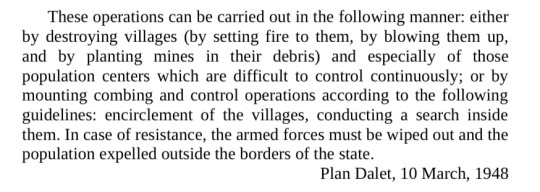
This is David Ben-Gurion explicitly saying that even 40% “non-Jews” (aka Arabs) in Palestine was unacceptable:

This is an example of how Plan Dalet was carried out in the village of Deir Yassin (tw: murder, sexual assault, this is extremely graphic)
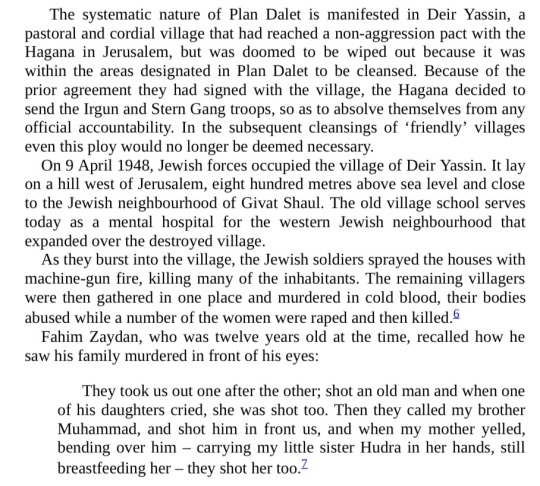
While to some, Zionism might seem like a nice idea, in practice, it requires murder and systematic cruelty towards the Palestinian population that is continuing to this day. This is why people are opposed to it. It has nothing to do with religion or antisemitism; it is because people can very plainly see that the occupation and genocide it has caused is morally wrong. To quote Dr. Gabor Mate on why he is no longer a Zionist: “Yes, we created this beautiful dream, but we created a nightmare for somebody else.”
I don’t know what percentage of the Jewish population are Zionists, but I think the fact that there is such a strong Jewish anti-Zionist community is proof enough that Zionism should not be linked to Judaism. In fact, you could even argue that saying so is antisemitic because it implies that every single Jewish person is complicit in Israel’s war crimes, which is not true. Furthermore, I strongly believe that many Jewish Zionists subscribe to the ideology because they have been told lies and propaganda about the creation of Israel. It is very evident that Israel is going out of its way to cover up its crimes against Palestinians (i.e. outlawing mentioning the Nakba, planting trees over destroyed Palestinian villages to make it look like nothing was ever there, etc.) I think more Jewish people would have second thoughts about Zionism if they knew the truth behind the ideology.
As for the notion that the military occupation and apartheid of Palestinians is somehow “necessary” for Jewish safety, I would say that this is not only untrue but also makes no sense. Violence is inherently necessary to run a military state and keep a population under an occupation, and violence is always going to beget more violence, which is the exact opposite of the “safe utopia” that Israel strives to depict itself as. Think about it: if you were in a Palestinian’s shoes, would you not do exactly what they are doing? If you were born under a military occupation where you were routinely at risk of being bombed and having your home stolen by settlers, would you not resist by any means necessary, even if it meant resorting to violence? At the end of the day, the only difference between you and a Palestinian is luck in where you were born - that’s it. Safety is not achieved by oppressing others. Safety is achieved with peace and respect for others. I am not against Israelis living in Palestine. But there is no reason why Palestinians need to be ethnically cleansed for that to happen. People of different religions coexisted in Palestine before Israel; there is no reason why that can’t happen again. The more Israelis that realize ending the occupation is in their best interest, the faster the violence will end. It really is that simple.
15 notes
·
View notes
Text
So You Want To Learn More About Palestine
Yes, the news is scary. Yes, there is a lot going on. Yes it can be very overwhelming. But we live in the information age and knowing what the heck is going on always helps when dealing with misinformation. "I don't know enough about what's going on to say anything about Palestine" is a fair response to have - but not a reason to stop there. So! Here's a short list of reading resources to get you started 💜
Edward W. Said was a Palestinian-American academic, literary critic and political activist who has written countless books on the subject. Any of his works would be a good place to start, but I recommend The Question of Palestine (1992) along with his memoir, Out of Place (1999)
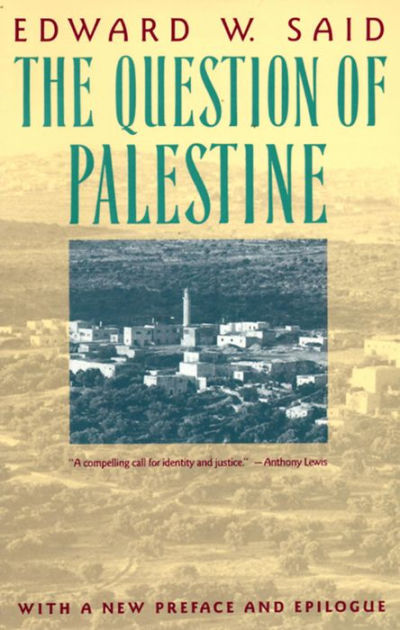

2. Rashid Khalidi is another Palestinian-American academic and historian with MANY books on Palestine and its struggles. For him I recommend Palestinian Identity: The Construction of Modern National Consciousness (1998) and The Hundred Years' War on Palestine (2020)

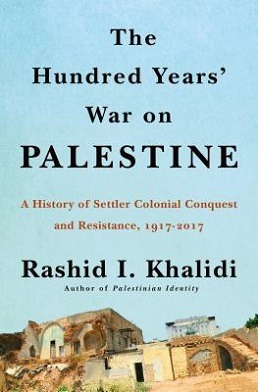
3. On a more personal note - and as a recommendation for someone who may not be super big on dense non-fiction, I recommend Joe Sacco's graphic novel Palestine (2001) where he writes about his experiences in the West Bank and the Gaza Strip in December 1991 and January 1992. I read this for my Rhetoric of Human Rights class and really enjoyed it, and it's easy to help you get your foot in the door.
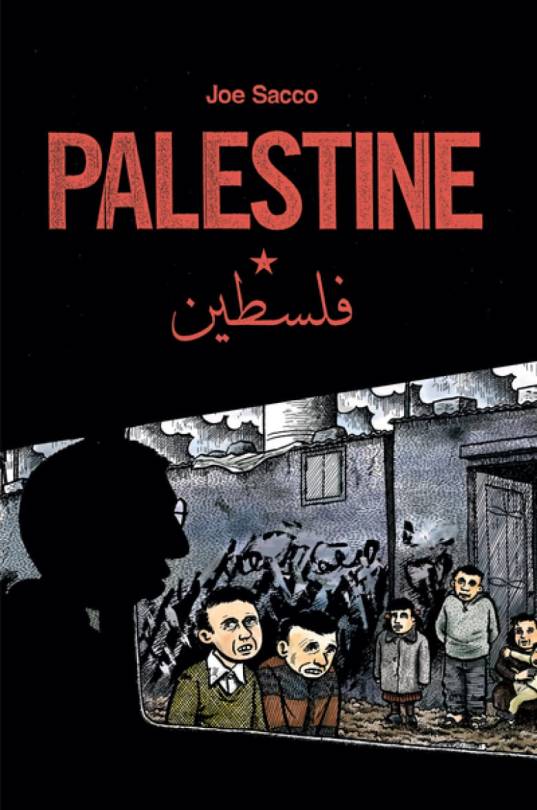
4. Ilan Pappé is an expatriate Israeli historian and political scientist who has also written a few books on the subject. I recommend The Ethnic Cleansing of Palestine (2006) and A History of Modern Palestine: One Land, Two Peoples (2003)
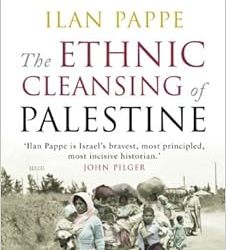

5. This last one is less Palestine-centric and more about the global struggle against violence and oppression. Angela Davis' Freedom Is a Constant Struggle: Ferguson, Palestine, and the Foundations of a Movement (2016)
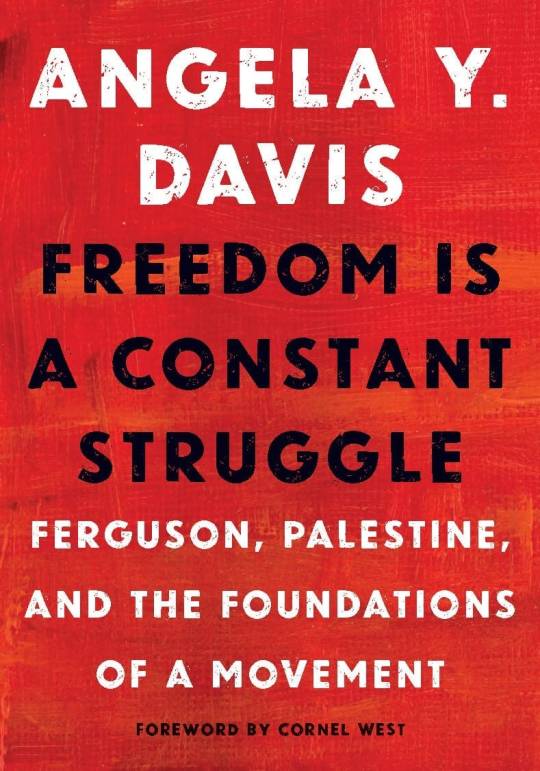
Do you want to dive deeper? Find more resources? Deconstruct a few myths you may or may not have heard through social media and otherwise? May I kindly direct you to decolonizepalestine - which is where I found a good number of these book recommendations myself!
"But Gaby, I don't wanna buy all these books!" Dude I'm not asking you to. I will, however ask you to:
Get a library card and check your local library
Take a look at academic databases like JSTOR if you're in college
Check archive.org for some of the older books
Try
I don't want there to be any mistake: Palestinians are victims of settler-colonialism. What they're facing right now is a genocide, with a long-standing history behind it enabled by some of the most powerful countries in the world. Learn about it. Speak about it.
It's still Free Palestine.
117 notes
·
View notes
Text
I was reading an article from CNN about journalists in Gaza (link) and this particular paragraph stuck out to me...
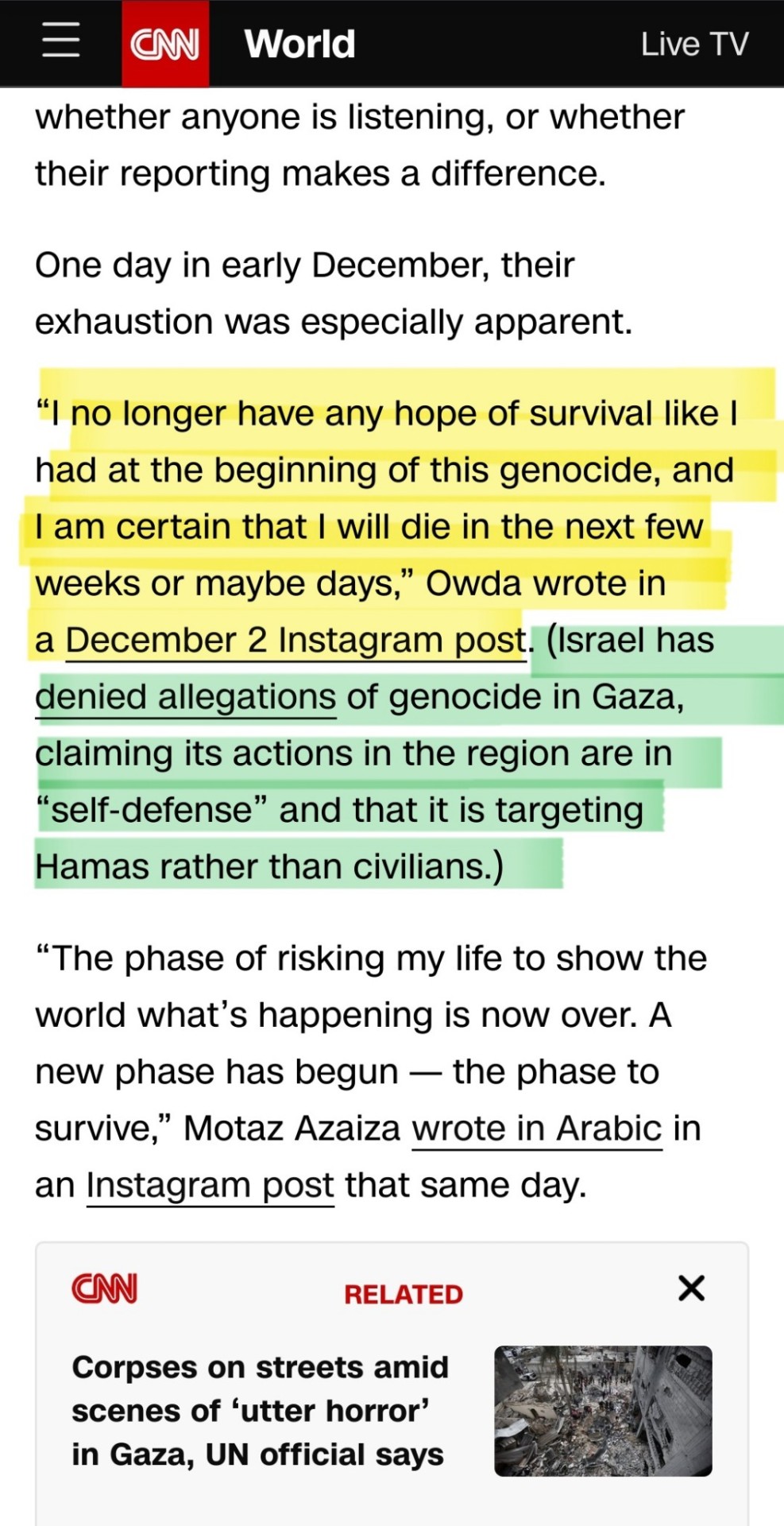
I was initially a journalism major in college so I understand the background of why an organization like CNN would require this style of reporting (i.e. "both sides" representism). However, these inserts of Isreali "viewpoints" that have been shown to be barefaced lies in an article about Gazan journalists risking their lives is just piss-poor optics.
If anyone wonders why people have lost faith in traditional media sources, this is a perfect example. In an article centering Palestinian voices, the organization still requires that Israeli talking points be linked as well and often, in the same paragraph. It reads like: 'here's a quote about a personal lived experience of genocide but nah uh, here's isreali propaganda claiming they are lying and bc they are an ally, they should be believed'. It's American/Western exceptionalism at its finest because "why should we believe a Palestinian, they aren't paragons of truth and justice like we are?"
I don't know if I quite explained myself like I wanted but this particular article just made me so angry that CNN and other Western media were once considered 'trustworthy' sources of information and now are parroting isreali lies. AND telling their readers that Palestinian voices on the ground telling first-hand information are not "good enough" sources of information.
459 notes
·
View notes
Text
Rory Gilmore: The Original Downtown Girl



When people think of Gilmore Girls they typically think of the show's staples. Coffee and junk food, the autumnal aesthetics, an extensive repertoire of pop culture references and quotes that define the livelihoods of fans everywhere - these are the things that make Gilmore Girls Gilmore Girls.
Fashion is slowly traipsing behind its sisters in the elements that create this outstanding show. Suffice to say, the lookbooks of the Gilmore Girls are stunning and character defining in many ways. From the elegant and 'old money' looks of Emily Gilmore to the wild and eclectic collection of clothes accumulated by Lorelai. Throughout the show, the bookish high achiever and kind-hearted Rory has a style that differs from the generations of Gilmores before her, and it is arguable that she defined an entire aesthetic of clothing in our modern world: the Downtown Girl.
The two staples of Rory Gilmore's style are long sleeved henley tops and low rise flare jeans. She usually pairs the two together with a pair of converse, creating a comfortable and casual look. Rory also is often depicted wearing long sleeved, tight fitting turtlenecks, thick oversized jumpers, cardigans and tank tops, alongside a mini skirt. Over the top of her plain yet pretty outfits, she often wears a zip up hoodie, trench coat or (most commonly) a corduroy, fur lined jacket. Overall, Rory's style is the epitome of the Downtown Girl aesthetic - cosy and simplistic whilst still retaining a fashionable allure.
Her colour palette usually comprises reds, browns, blues and white - a dark and autumnal scheme that compliments her dark brown hair and make her blue eyes appear more prominent. However, these aren't the only colours Rory wears throughout the show, with pink, green and yellow all also making the occasional appearance in her lookbook.

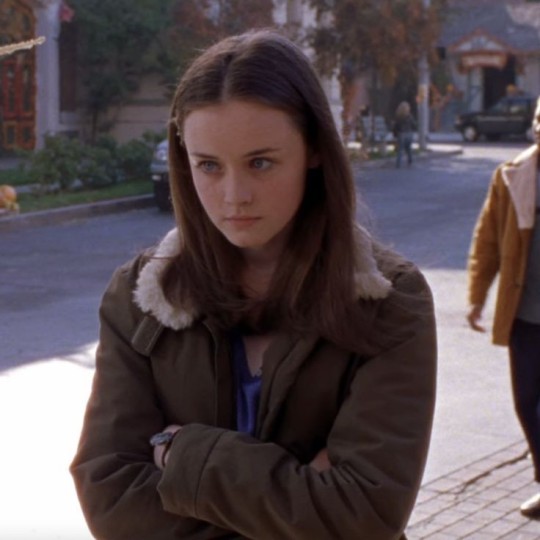
Although most of her outfits contain solid, colour block pieces, Rory also can be seen frequently sporting floral or stripy tops alongside the occasional argyle jumper or plaid skirt. She doesn't usually mix and match these patterns, sticking to one per outfit which prevents her outfits from appearing jarring or too disjointed.
In terms of nightwear, throughout the show, Rory is shown to wear patterned button down pyjamas in a whole assortment of colours from beige to magenta. The unusual patterns that appear on Rory's pyjamas vary. They typically are of some kind of food (ranging from ice cream to donuts to pie) but a few are instead of other patterns, such as comic strips or snowflakes. Her eclectic pyjama collection displays Rory's personality perfectly, and further emphasises her similarities to her mother Lorelai and the often childish nature of their relationship.
Rory Gilmore will forever remain the original Downtown Girl, her outfits helping to formulate the style of a whole generation of Gilmore Girls addicts everywhere. Despite the fact that Rory (arguably) had a downfall in terms of her personality following season 3, it's safe to say that her outfits never fail to impress and will be admired for years to come.
35 notes
·
View notes
Text
I keep seeing people making fun of using growled, hissed, roared, snarled etc in writing and it’s like.
have you never heard someone speak with the gravel in their voice when they get angry? Because that’s what a growl is.
Have you never heard someone sharply whisper something through the thin space of their teeth? Or when your mother sharply told you to stop it in public as a kid when you were acting up/being too loud? Because that’s what a hiss is.
Have you never heard a man get so blackout angry that their voice BOOMS through the house? Because that’s what a roar is.
Have you never seen someone bare their teeth while talking to accentuate their frustration or anger while speaking with a vicious tone? Because that’s what snarling is.
It’s not meant to be a literal animal noise. For the love of god, not every description is literal. I get some people are genuinely confused, but also some of these people are genuinely unimaginative as fuck.
84K notes
·
View notes